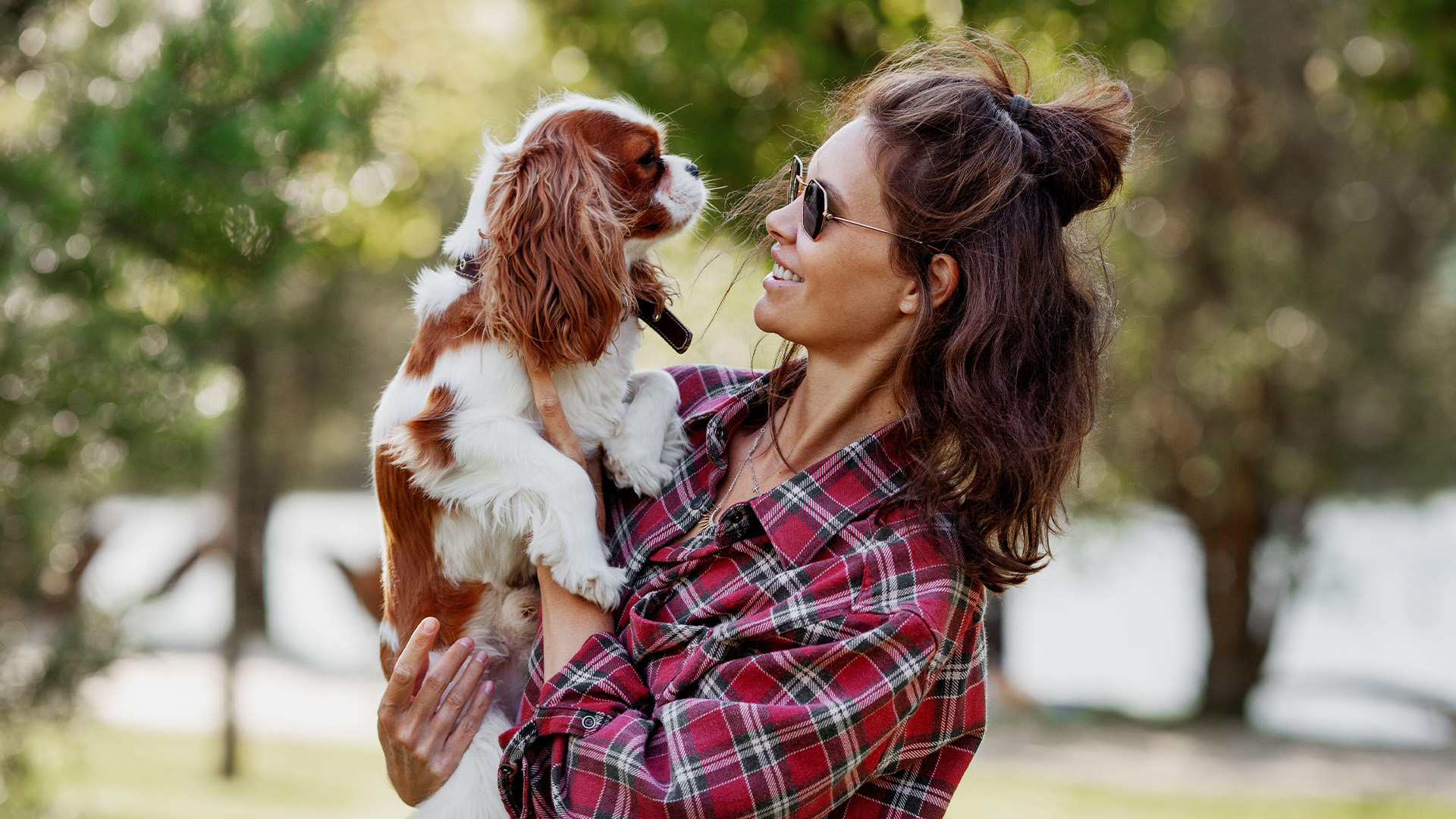Problem behaviors in ‘pandemic puppies’ are impacting the relationship between owner and dog, new research suggests
Puppies who found homes over the COVID-19 pandemic faced unique challenges that could still be having an impact

Did you bring home a new puppy during the COVID-19 pandemic? The pandemic led to a worldwide increase in puppy purchasing, so if you did buy or adopt one at the time, you’re not alone.
Most of the puppies who found a new home during the pandemic are still enjoying happy lives with their humans full of the best dog toys and treats, but the increase in puppies bought did lead to welfare concerns for these dogs due to the potential for impulsive purchases and increased production of puppies from poorer welfare sources.
These concerns, combined with restricted early-life experiences and socialization – understandable in the context of the pandemic – were feared to lead to problem behaviors that would weaken the relationships between dogs and their parents, and increase the likelihood of more parents giving their dogs up.
The Royal Veterinary College (RVC) has been studying these dogs for some time, and new research has brought to light the negative impact of problem behaviors in young adult dogs on the strength of the relationship between canine and human.
The RVC’s findings could help support interventions intended to support the parents of dogs with problem behaviors, improving their relationships with their dogs, making the dogs themselves happier, and preventing relinquishment or even euthanasia.
This study included data from 794 dog parents, part of the wider ‘Pandemic Puppies’ research, who shared information when their dogs reached 21 months of age. It looked at the amounts of companionship, attachment, and love felt by parents toward their dogs, as well as how burdened they felt by dog ownership – in terms of factors like time, emotion, effort, and financial cost.
The study found that parents reporting problem behaviors found dog ownership to have a higher burden, with those reporting multiple types of aggression showed by their dog feeling less emotionally close to them.
PetsRadar Newsletter
Get the best advice, tips and top tech for your beloved Pets
Meanwhile, dog parents using more positive reinforcement felt more emotionally close to their dogs than parents who used punishment-based methods. And, those who bought puppies specifically because of the pandemic considered them a higher burden than those who’d already been planning to get a puppy before the pandemic began.
Dr. Bree Merritt, PhD student at the RVC and the study’s lead author, said: “These results show how important it is to find evidence-based help for problem behavior to improve the emotional health of dogs, their owners and sustain their relationship. Owners who are struggling with problem behavior in their dog should contact their vet who can look for any underlying physical problems, and refer them to an accredited behaviorist.”
Dr. Rowena Packer, Senior Lecturer in Companion Animal Behaviour and Welfare Scientist at the RVC, and senior author of the study, explained that while there have been campaigns in the UK to encourage prospective parents to consider their ability to care for a dog over the pup’s entire life, greater interventions might be needed.
“As seen in some European countries,” she added, “This could include compulsory courses as a deterrent to impulsive and uninformed acquisitions, which could also act as a vehicle to increase awareness of the legal obligations of dog ownership.”
Are you thinking about welcoming a new puppy yourself? Here’s what to know about taking a puppy home for the first time. If you’re considering adoption, meanwhile, you might find this article from a fellow dog parent interesting: My rescue dog helped me reconnect with people after the pandemic, here's how.

Adam is a freelance journalist specialising in pets, music and culture, and mental health and wellbeing. He investigates and writes the large majority of news on PetsRadar, and collaborates with veterinary experts to produce informative pet care content.
Adam has a journalism degree from Southampton Solent University and a masters degree in Magazine Journalism from Cardiff University. He was previously senior editor at dog advice website DogTime.com, and has also written for The Independent, GoodToKnow and Healthline.
He owns two rescue cats, Bunny and Dougie, and has also previously had a rabbit, fish and Roborovski dwarf hamsters.
